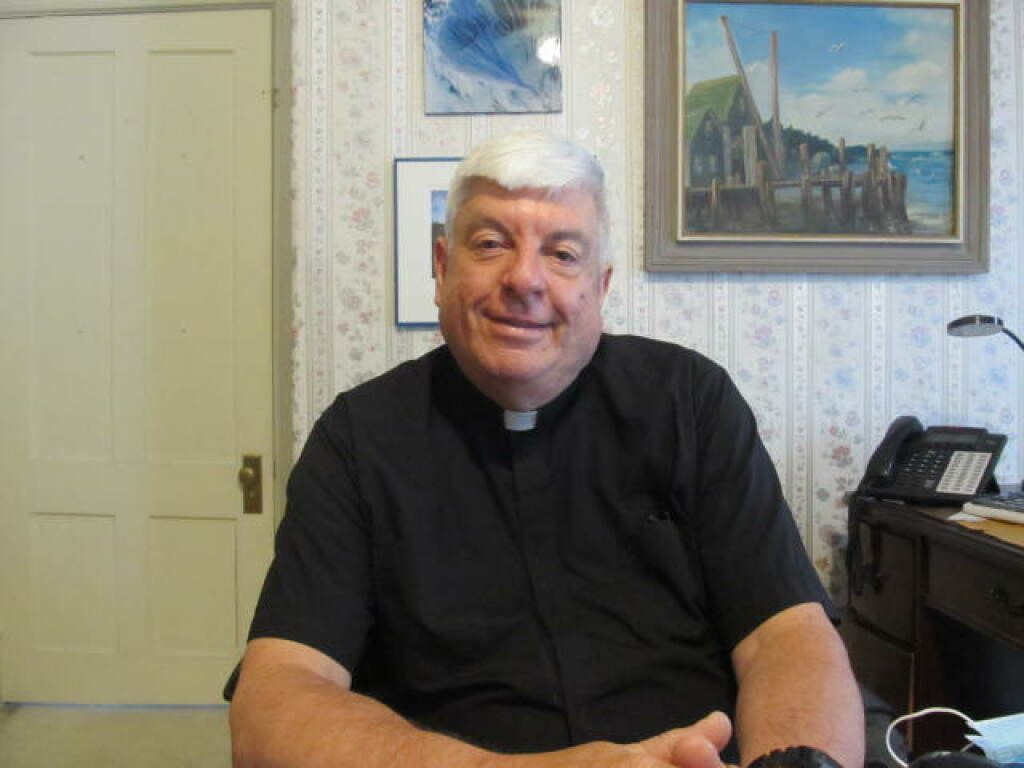 The Resurrection of Jesus: Faith and Doubt
The Resurrection of Jesus: Faith and Doubt
Homily for the Second Sunday of Easter
April 11, 2021
I was reflecting on so-called “Doubting Thomas,” and was wondering what the opposite of the Doubter might look like. I found this very charming story to help our reflection.
One night while babysitting, a grandfather passed his granddaughter’s room and overheard her repeating the alphabet in an oddly reverent fashion. “What on earth are you up to?” he asked.
“I’m saying my prayers,” explained the little girl. “But I can’t think of exactly the right words tonight, so I’m just saying all the letters. God will put them together for me, because he knows what I’m thinking.”
It makes me think of the day I made my First Communion. I was so excited that I woke up real early, and woke up my parents in the process. I just couldn’t wait to get to church so that I could receive Jesus. And now, I think about the many ways in which I have lost my innocence, complicated the truth, created sophisticated explanations, and built up a reasonably comfortable life that is not fully in keeping with what Jesus asked for.
At about the same time as my First Communion, my grandfather died. They had the wake in the house, so my parents thought it best if I slept at a neighbor’s house for the duration of the wake. I was brought over to say good-bye to grandpa, and to offer some prayers. I recall noting that several of the people there were crying, and wondering why. If heaven was as good as they said it was, and my grandfather was in heaven, why cry?
You see, like the little girl who trusted that God would finish her prayers, believing that Jesus had risen from the dead presented no problem for me when I was eight years old. Surely, I was one of those, as Jesus said in today’s gospel, who was blessed because I believed without seeing.
But of course, as we mature, our world, and the way we think about it, changes. We’re exposed to the scientific method in which the establishment of a fact requires more than somebody’s word for it. We require proof. When I was taking geometry in high school, we had to put QED, “quod erat demonstrandum”—“which was to have been proved” at the end of each problem we solved. The teacher wouldn’t simply take my word that I knew what I was doing. He required proof. And I remember learning somewhere along the way that Missouri is known as the “Show me State”—which means that the people of Missouri aren’t easily fooled. They require proof.
And when it comes to faith in God, even believing in the existence of God, there are experiences we have than can rock the foundation, and we’re not quite as accepting as when we were eight-year-olds. Difficult and painful things happen. Someone we love gets cancer and dies. A marriage falls apart. Innocent people, even children in their schools, get shot to death. The Jews were nearly exterminated in the Nazi death camps. So, in the face of so much misery and death, it becomes easy to wonder. And doubt. And from the depths of our souls we scream: If you exist, God, I need some proof here.
And so, I try to put myself in Thomas’s shoes. Can you imagine how he felt? The one he had put his life’s hopes in had let him down. The one he had believed to be Messiah and Lord had been condemned in a sham of a trial and cruelly put to death. Thomas was probably angry, numb, afraid, disillusioned, confused, depressed, and lost in an ocean of grief. And now his friends, those he had shared his life with, now they come forward with this crazy story, and he wants to know what they’ve been drinking.
Of course, we’ve just read the rest of the story, which records Thomas’s words of belief, calling Jesus “My Lord, and my God.” The story has a happy ending. But you know, Thomas is a lot like us. We know what it is to doubt. We know what it is to require proof. And I think this is precisely why the story of Thomas is recorded. Because he needed proof, that makes him a good, solid witness. He wasn’t gullible. He wasn’t walking around carrying Easter lilies and singing Kumbaya. Before he would become a witness to the Resurrection of Jesus from the dead, he needed proof, he required solid evidence.
And there is a further reason that makes Thomas’s witness compelling: in the end, he was willing to die a martyr’s death, still believing in the Resurrection. People are very seldom willing to die for a lie. But they will die clinging to the truth. And this is what Thomas did. He went to his grave believing in the Resurrection. He had his proof. And he has shared his testimony with us—and anyone who is willing to listen.
Throughout this Easter Season we will here other stories of how other disciples came to believe, how their belief changed their lives, and how they chose death rather than changing their story. And we will be asked, over and over again, in all the messiness and promise, all the misery and hope, all the challenges and joys of our lives: Do you believe, even though you have not seen?
You might also like
Father's Homilies




